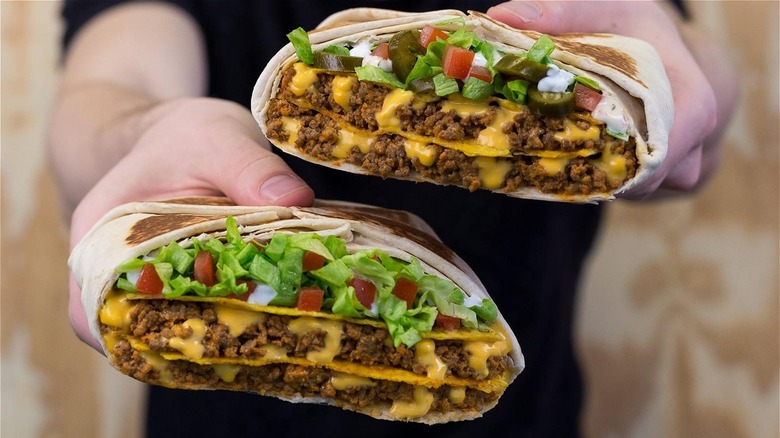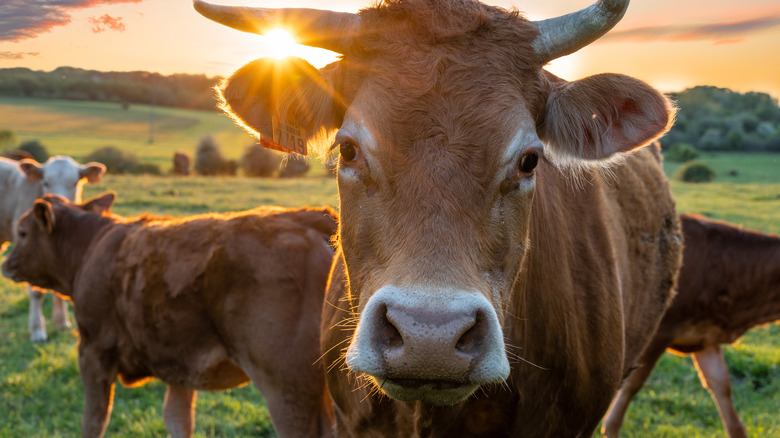Taco Bell Has Its Eyes Set On More Sustainable Beef
It's very evident that Taco Bell and its customers love cows: 290 million pounds of ground beef are served by the company every year, its website confirms, adding that such a hefty figure makes Taco Bell one of the biggest beef purchasers in the country.
The fast food institution is planning to make its beef supply chain more sustainable by giving farmers the resources to safely manage tens of thousands of acres, resulting in improved biodiversity and water quality, as well as curtailed carbon dioxide emissions. Taco Bell, along with its supplier Cargill, has pledged $2 million to support the effort, which is part of wider plans to improve meat sustainability, according to Nation's Restaurant News.
In addition to the methane produced by cows that contributes to climate change, cattle farming is typically damaging to the environment where it takes place. Grazing animals require a lot of space, and cattle ranching contributes to deforestation in order to support the high number of animals. Water pollution and damage to surrounding ecosystems can also occur.
Taco Bell follows other beef sustainability targets
Taco Bell is already working to reduce its environmental footprint. The company is a member of the U.S. Roundtable for Sustainable Beef, a group of individuals and organizations involved in the beef supply chain who want to improve the country's beef sustainability. The group wants to see 385 million acres covered by grazing management plans by 2050, according to the Roundtable's website. This would essentially prompt industry users to consider the sustainability of the land from which their beef is sourced. Sustainability considerations could include soil health, biodiversity, and deforestation. Similarly, the group is seeking to decide on a water quality target by 2025, tackling matters such as reducing pollution from agricultural feed and manure.
The parent company of Taco Bell, Yum! Brands, also has commitments about beef. These include reducing the greenhouse gas emission impact of beef by its restaurants by 2030, ending natural deforestation by 2030, and curtailing water use. (Yum! Brands believes 98% of its beef is already sourced from areas with a "lower" risk of tropical deforestation.)
While these are undoubtedly much needed and admirable efforts to improve beef sustainability at Taco Bell and across the whole meat industry, whether the targets are aspirational and definitive enough to have a noticeable impact remains to be seen.

